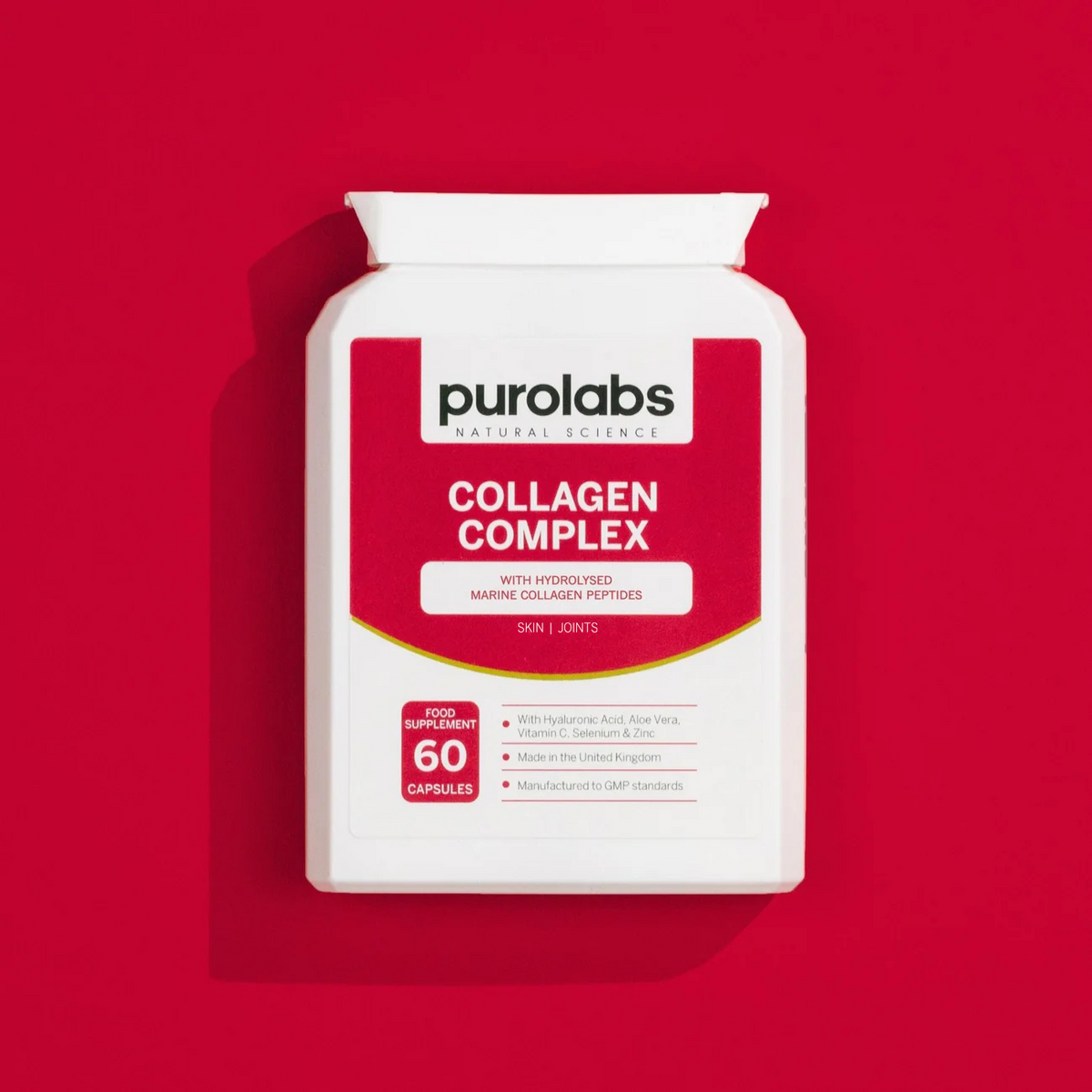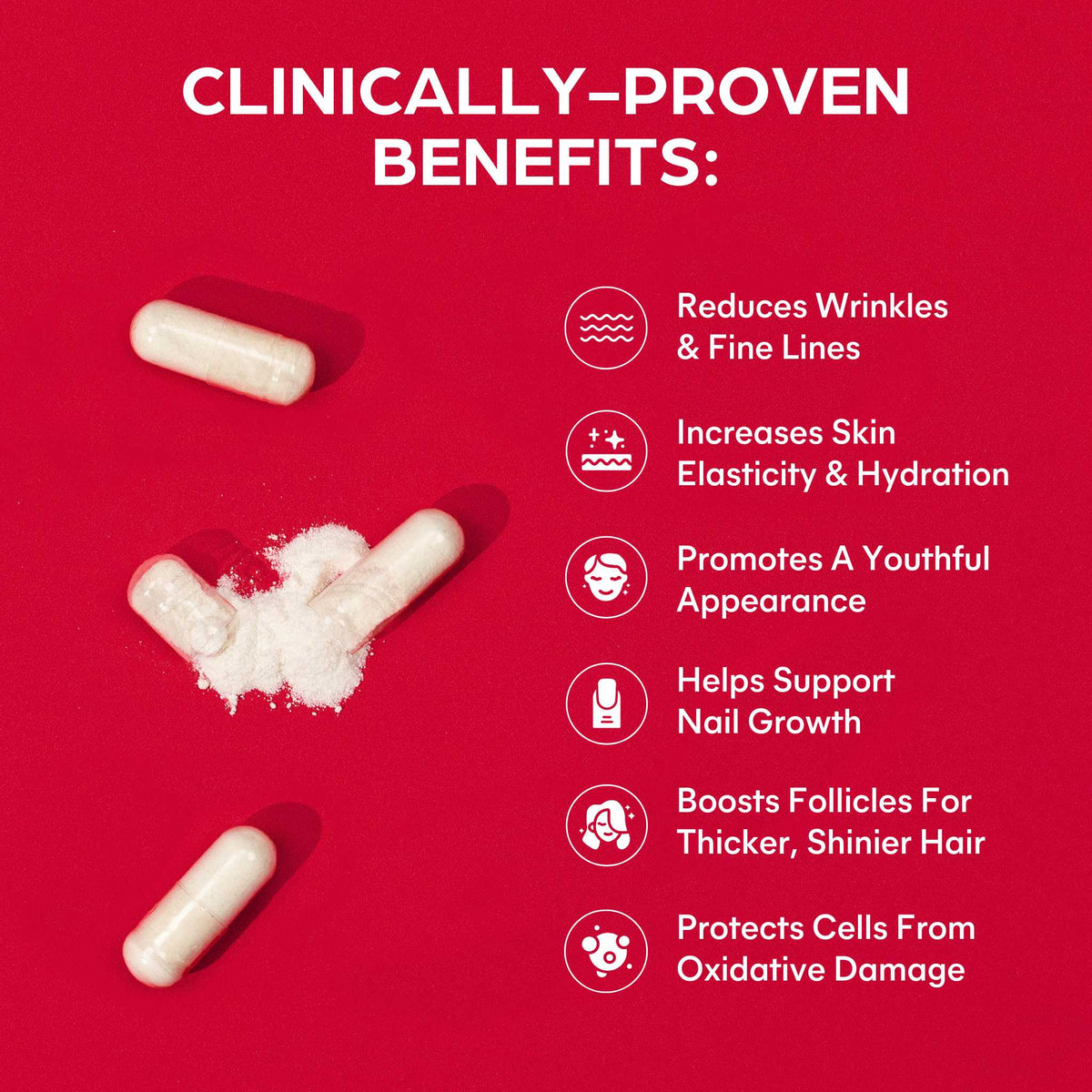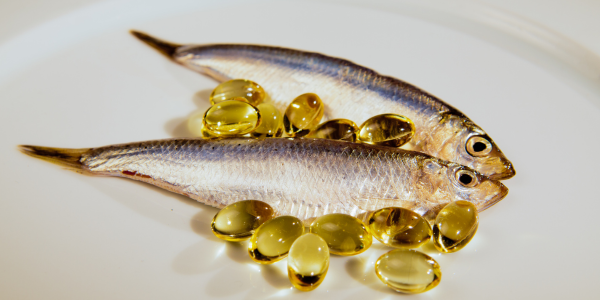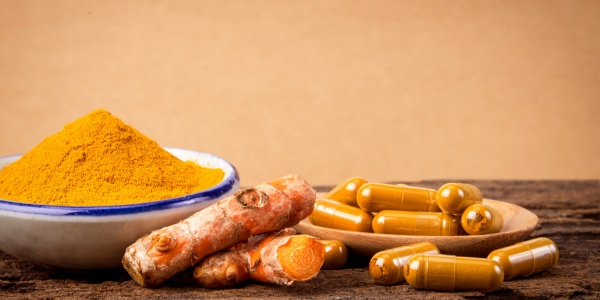Just like your hair, skin and teeth, healthy nails are a reflection of your internal environment.
Nutrition is the fundamental building block for creating healthy strong nails and without it, nails take a physical impact. Nutrients help to nourish, build and grow nails and a deficiency in key nutrients will show.
If you have struggled with your nail health, whether it's finding that they don’t grow as quickly as you’d like, or when they do, they’re prone to breaking or peeling, or you’re finding that you regularly face a broken nail and unsure how it happened, then look at your diet and what might be lacking.
A wholefoods diet is rich in plenty of the micronutrients that nails need1. However, if you are targeting nail health then you need to get specific about what nutrients contribute to healthy durable nails. There are a range of nutrients which have been clinically studied for their effects on nail health, highlighting a few key nutrient deficiencies that are directly linked to poor nail health.
In this article, we’re going to explore the main nutrients you need to consider to encourage nail strength, growth and durability from the inside out.
Biotin (Vitamin B7)
Biotin is a key water-soluble nutrient for keratin production, with biotin being one of the most vital nutrients for nail health. You’ll see plenty of skin, hair and nail supplements on the market that include high strength biotin, and for good reason.
Whilst biotin deficiency isn’t common, those who struggle with brittle nails report significant improvements in their nail health after taking biotin supplementation.

Biotin Complex
Vitamin B12
Vitamin B12 helps with red blood cell production, which help to transport oxygen and nutrients to nails, helping to strengthen and support them.
Cutaneous hyperpigmentation, known as melanonychia or ‘blue nails’, is a condition commonly linked to B12 deficiency, where the nails become darkly pigmented as a result of a lack of haemoglobin (oxygenated blood) reaching the nail bed2.3.
A key sign of vitamin B12 deficiency is nail ridges, which appear as raised lines running down the nail. If you notice nail ridges and your nails are brittle, then I highly recommend B12 supplementation.

Vitamin B12
Iron
Iron, again, is another nutrient which helps transport blood and nutrients to the nail bed. Iron deficiency can be a risk factor for pale, brittle nails and can be a cause of koilonychia (spoon shaped nails) 4.
Please be aware that spoon shaped nails may be a sign of cardiovascular disease, if you notice your nail shape changing then do book in an appointment with your healthcare practitioner.

Iron Complex
Zinc
Zinc is a crucial nutrient in order to build nails. It is involved in the building of nail cells, and helps to support strong, healthy nail beds.
It also helps to support keratin synthesis which we know is vital for healthy nails.
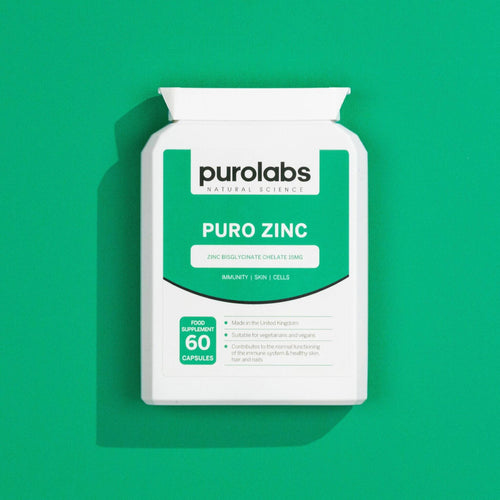
Zinc
Omega-3 Fatty Acids
Omega-3 is especially important when it comes to brittle nails, as one of the key reasons for brittle nails can be down to a lack of nourishing and lubricating nutrients.
This is where omega-3 steps in. This vital fatty acid helps to nourish nails, helping them to look shinier, reduce breakage and improve physical nail resilience.
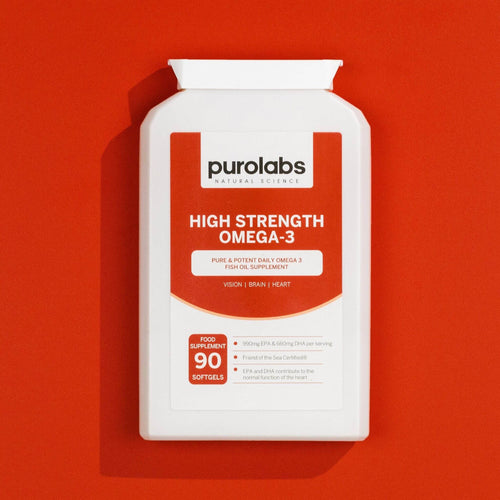
Omega-3
Vitamin D
The role of vitamin D in nail health is its influence on regulating calcium levels. Calcium is a key contributor to the structure of nails, and helps to strengthen them to reduce breakage.
Vitamin D has also been studied for its potential benefits on nail psoriasis, potentially helping to reduce inflammatory conditions of the nail bed5.
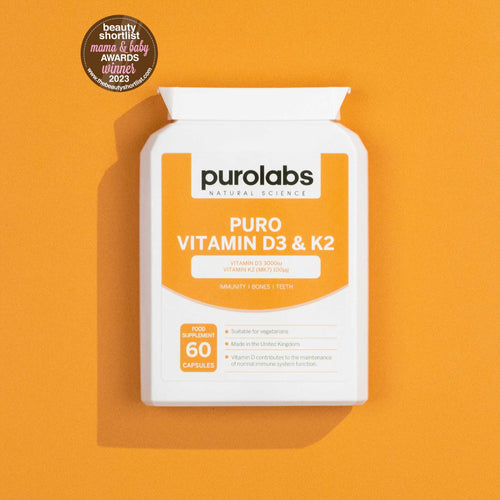
Vitamin D3 & K2
Protein For Brittle Nails
Nails are predominantly made up of the protein keratin, which also makes up the structure of our hair and skin and helps to quite literally build the structures that support and carry our bodies6.
Keratin is a tough, durable protein and requires adequate dietary protein in order for our body to produce enough of this substance to support nail health.
A lack of protein in the diet may lead to soft, weak, brittle nails which snap easily. To support nail integrity and resilience, focus on including a source of protein with every meal. Food sources of protein include7:
Animal Protein: Eggs, red meat, poultry, Greek yoghurt, seafood
Plant Protein: Beans, legumes, tofu, tempeh, peas, brown rice, buckwheat, quinoa, nuts & seeds
Don’t Forget Digestion
Protein is mostly digested and broken down in the stomach8. A healthy stomach maintains a nice acidic environment (pH 2) to help effectively break down foods into usable components for many bodily processes to support health and wellbeing.
If your digestion is poor, whether that’s from a history of:
- Chronic antibiotic use disrupting the gut microbiome9
- The use of protein pump inhibitors (PPIs) and over the counter meds for heartburn and reflux10
- From a work hard/play hard life
- Surgeries that have impacted gut structure
- A highly processed diet
Then you may need to focus on digestion to help absorb vital nutrients and minerals from your supplement and dietary intake.
A common phrase we use in the nutrition world “we aren’t what we eat, we are what we absorb” is crucial when it comes to good health.
A great diet is wonderful, but if our digestive tract can’t absorb it – our body will not receive all the amazing benefits of varied nutrition.
In order to improve digestion, add a few below tips to your daily routine:
- Instead of grazing all day, focus on three meals to provide your gut with a few hours in-between each meal to fully digest that meal before you eat the next one
- Aim to have your last meal at 7.00pm or at least three hours before bed
- Include digestive aids: ginger, lemon, turmeric, rocket, broccoli, asparagus, watercress are great digestive aids.
- Eat in a relaxed ‘still’ mode to support your parasympathetic system to digest11
- Chew each bite several times before swallowing to make it easier for the gut to break it down.
Environmental Impact on Nail Health
Our diet and supplement routine are both great ways to support healthy and strong nails from the inside out. However, don’t forget that our hands come into contact frequently with the environment around us.
You may have the perfect supplement routine and take good care of your gut health, but if you’re not considering what your hands come into contact with on a daily basis, all that hard work may be hindered.
In order to physically protect the structure of nails, do consider your environment. Are you cleaning with harsh chemicals? If so, do use gloves to protect nails from coming into contact with chemicals that may lead to nail erosion and wear and tear.

 Beauty
Beauty
 Bone Health
Bone Health
 Brain Health
Brain Health
 Energy
Energy
 Eye Health
Eye Health
 Gut Health
Gut Health
 Hair
Hair
 Hormonal Health
Hormonal Health
 Heart Health
Heart Health
 Immunity
Immunity
 Joints
Joints
 Menopause
Menopause
 Pregnancy
Pregnancy
 Kids
Kids
 Sleep
Sleep
 Stress & Mood
Stress & Mood





